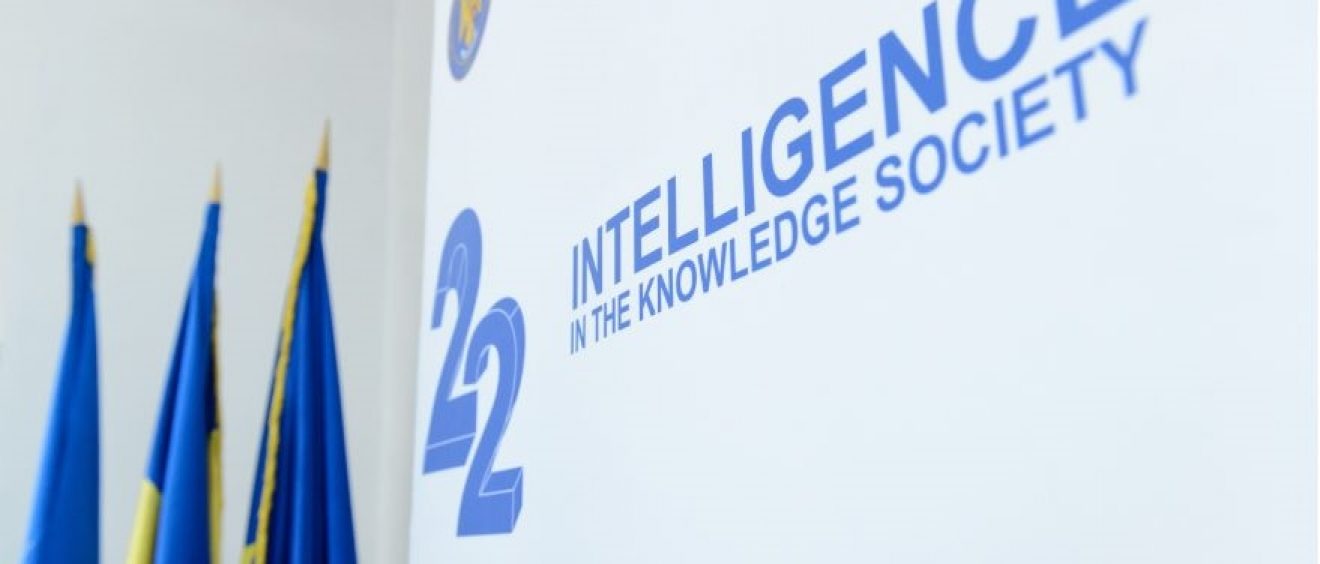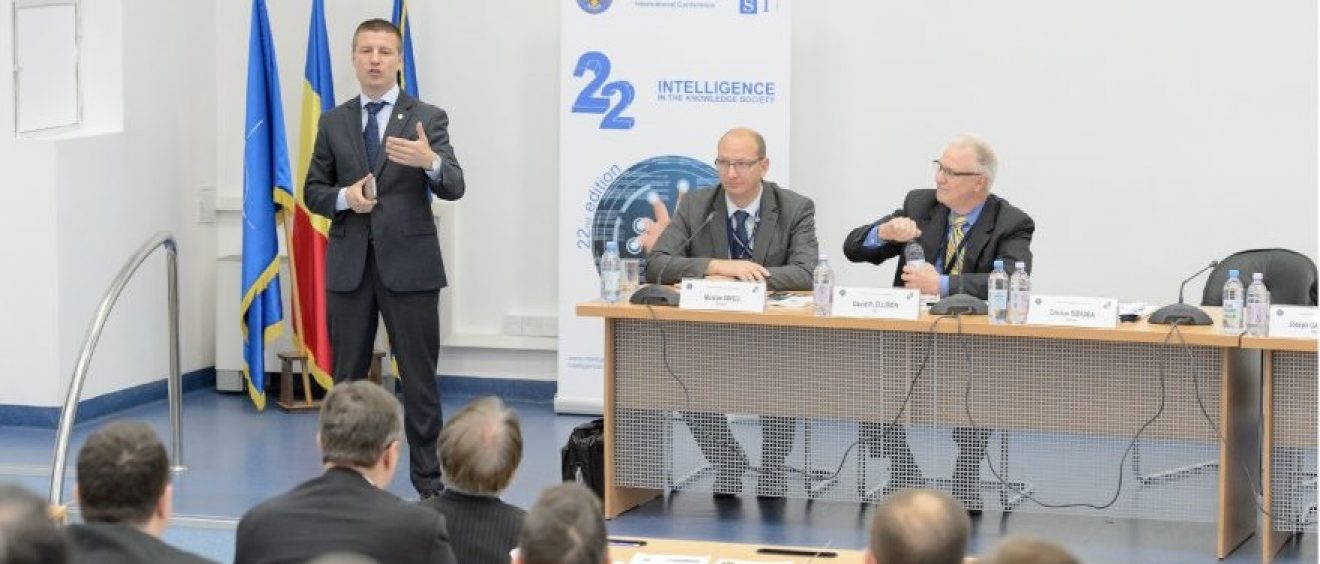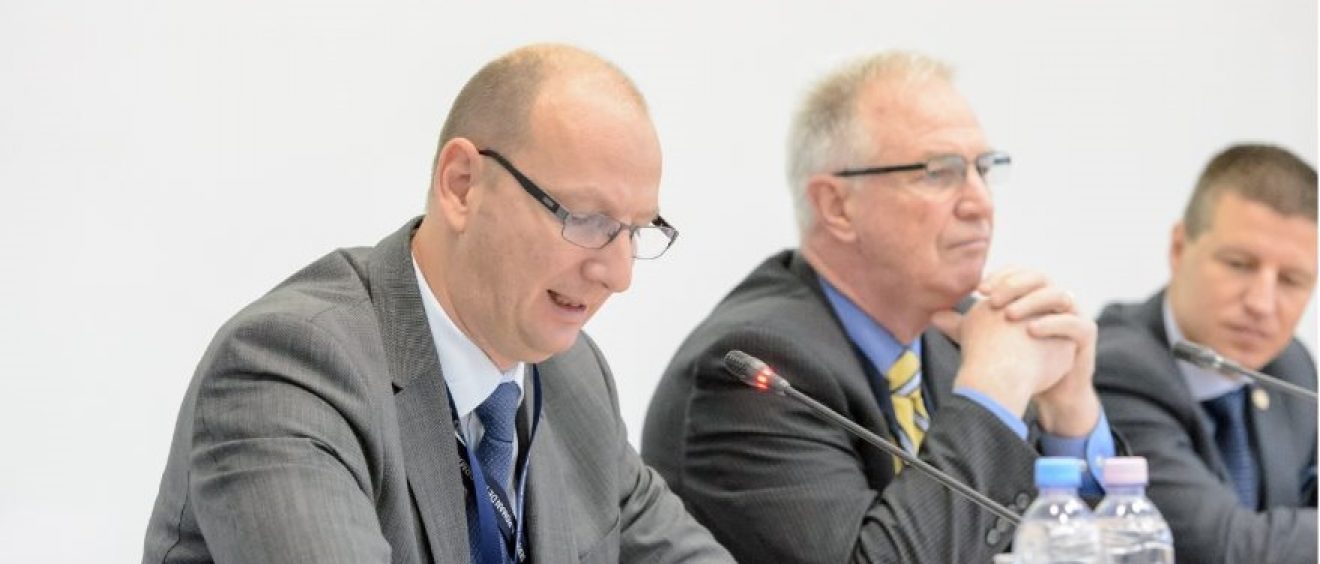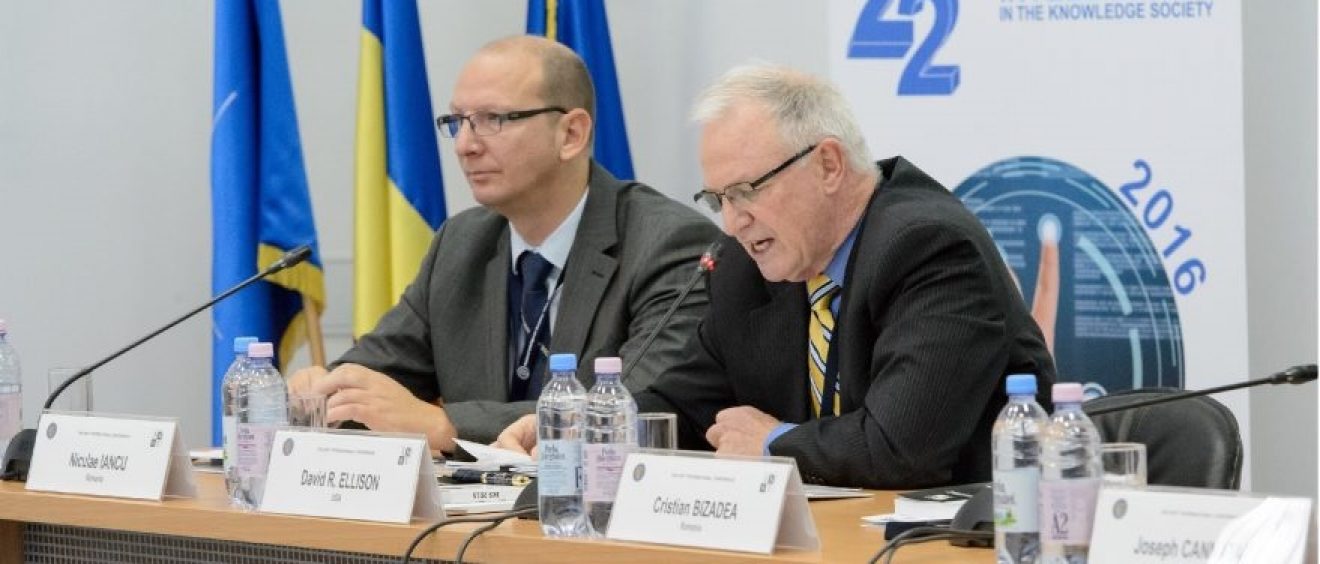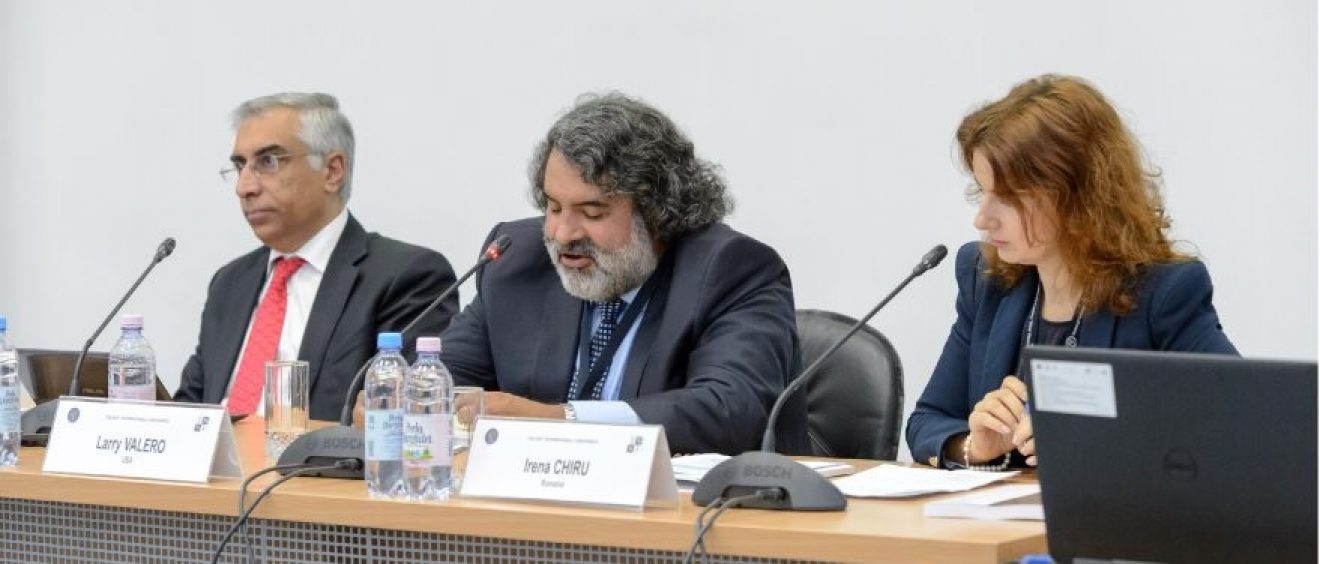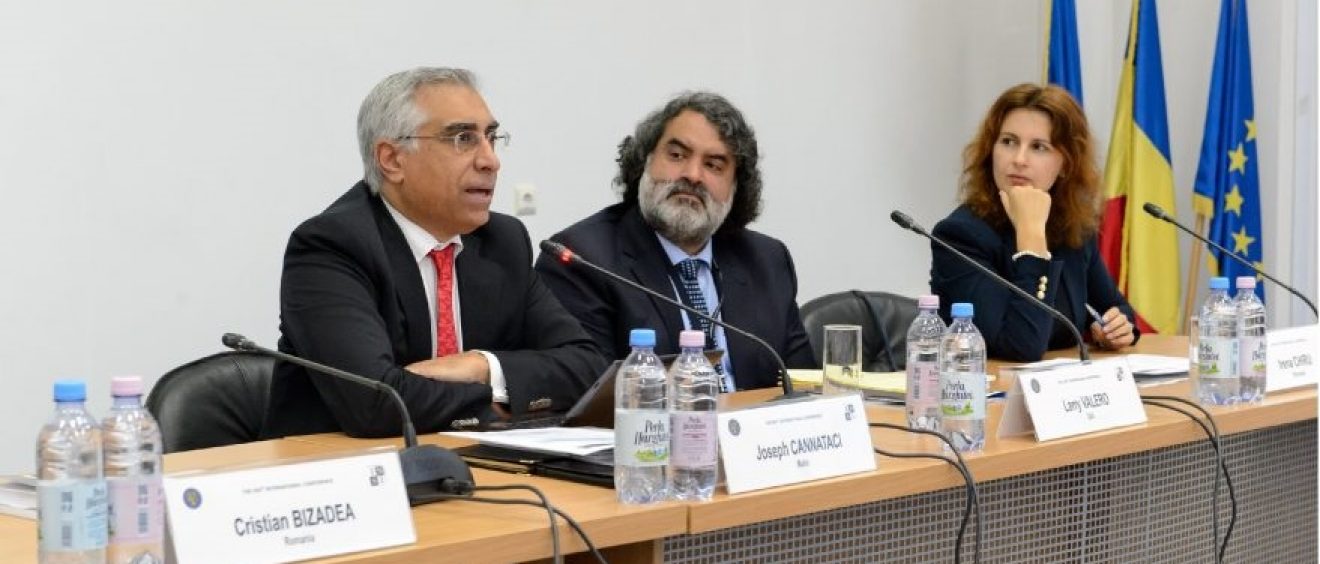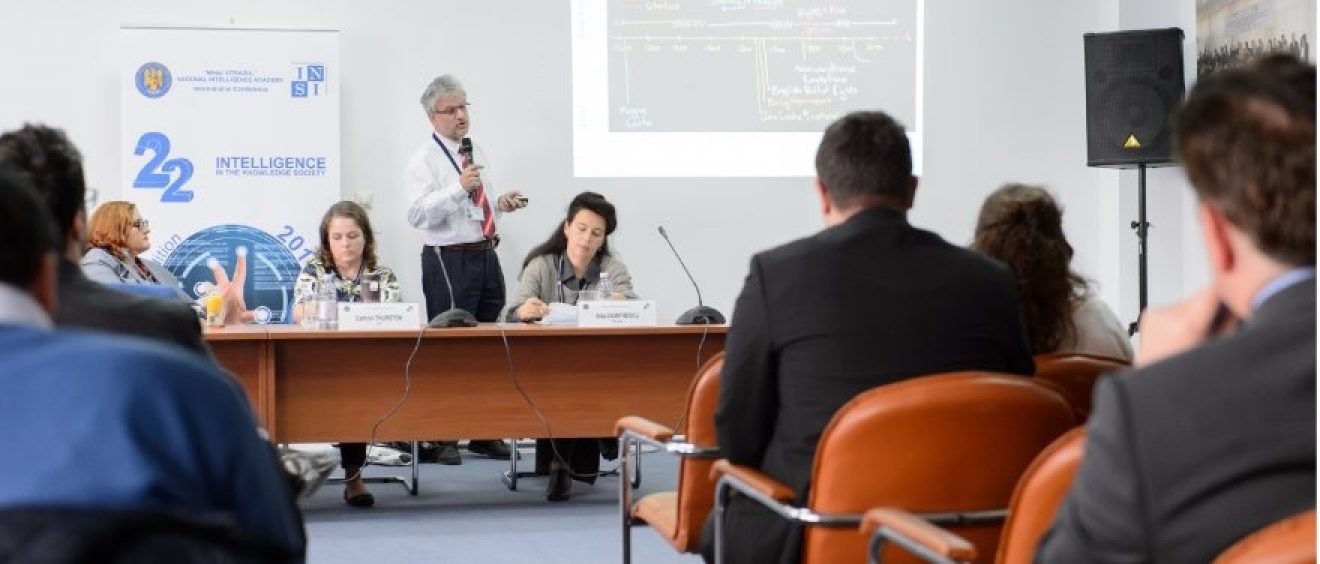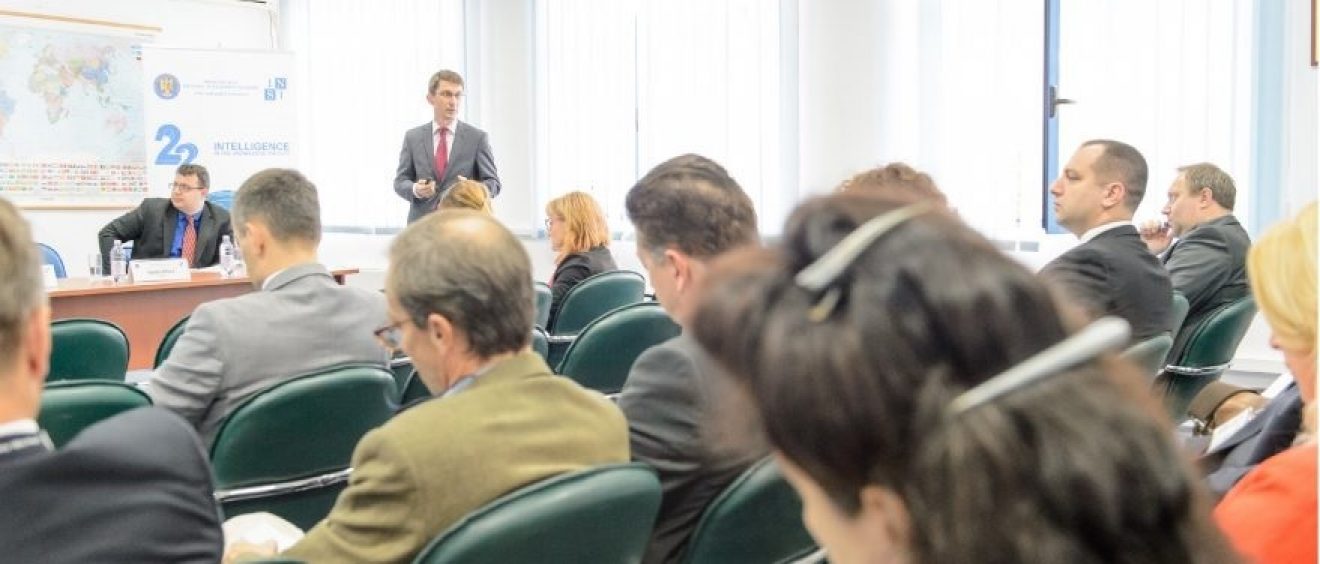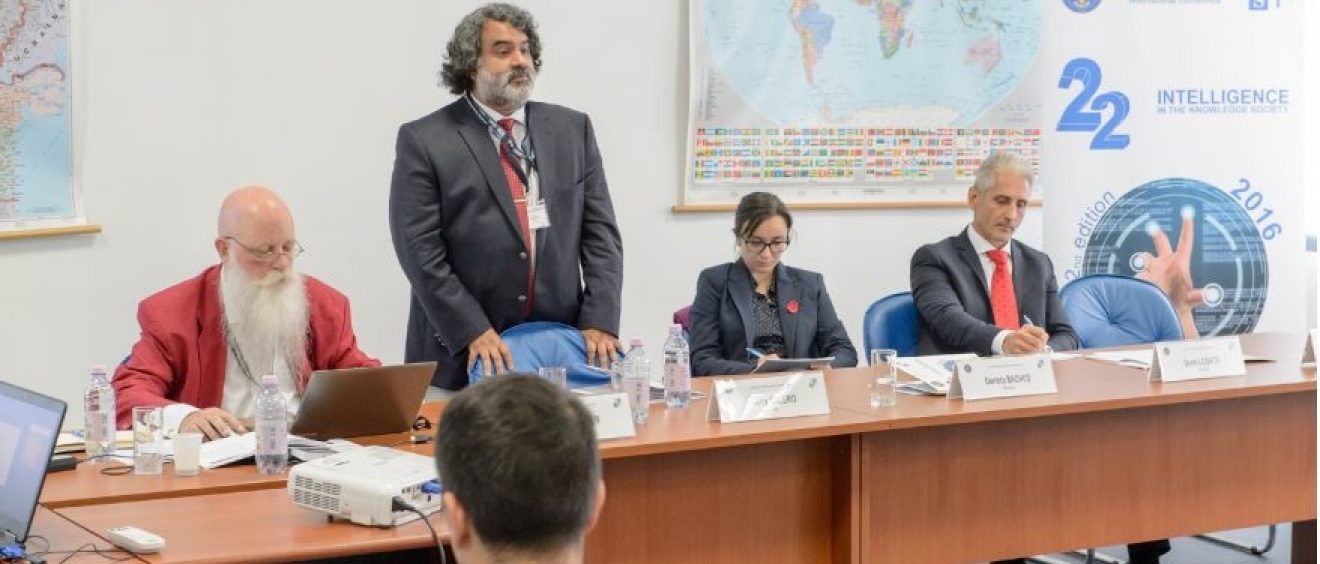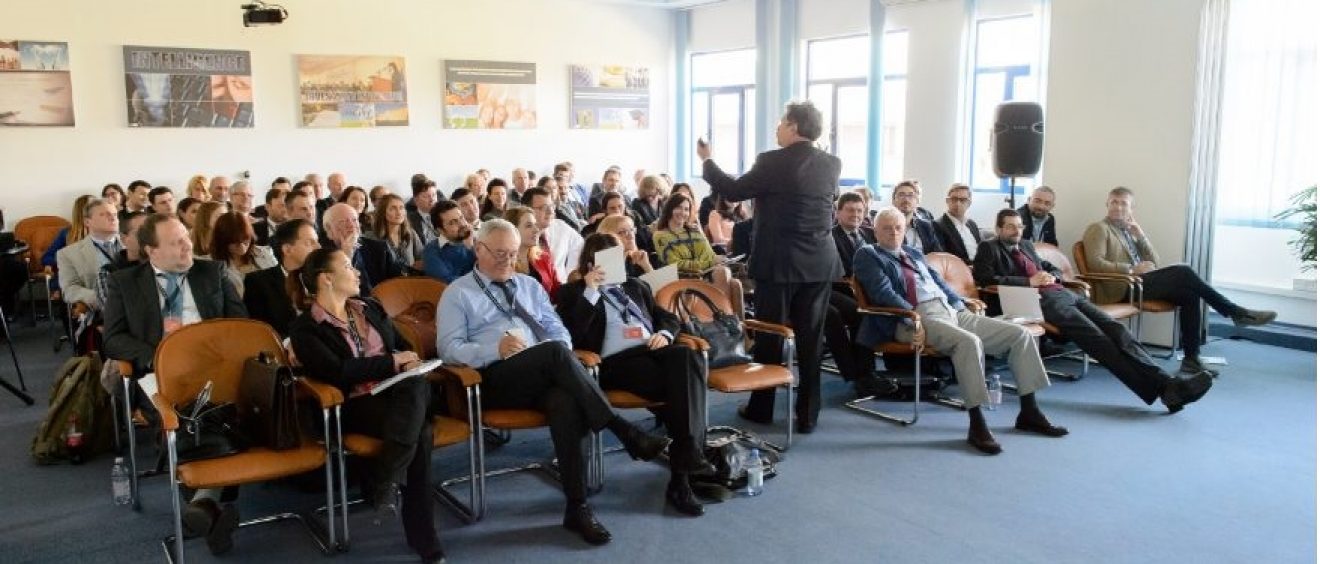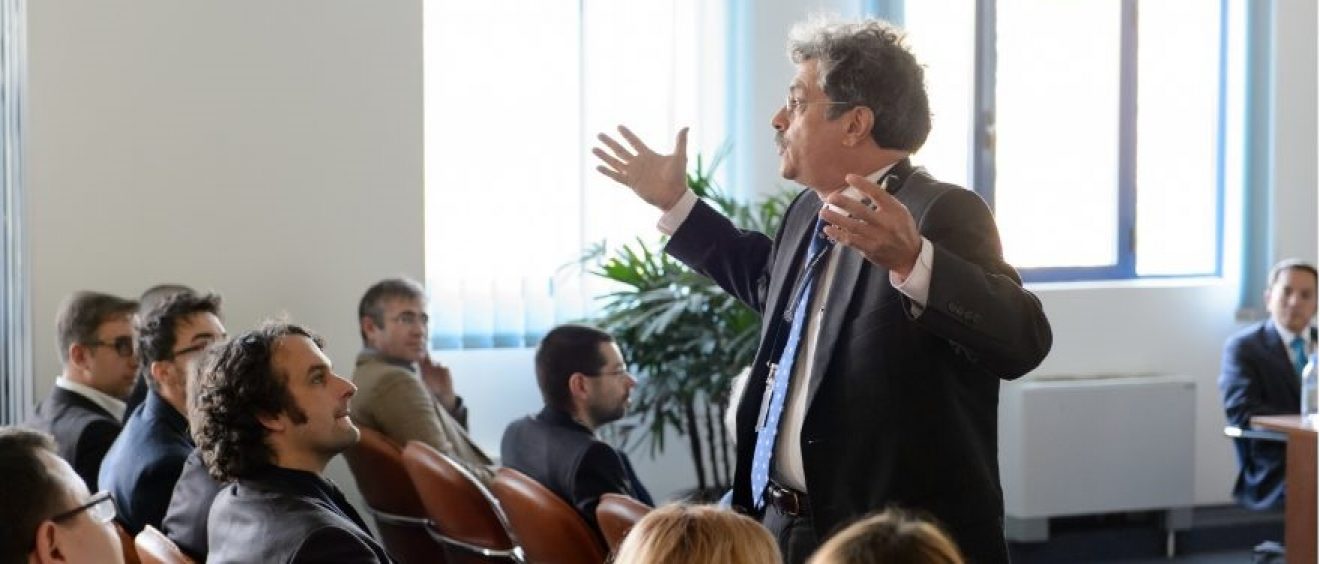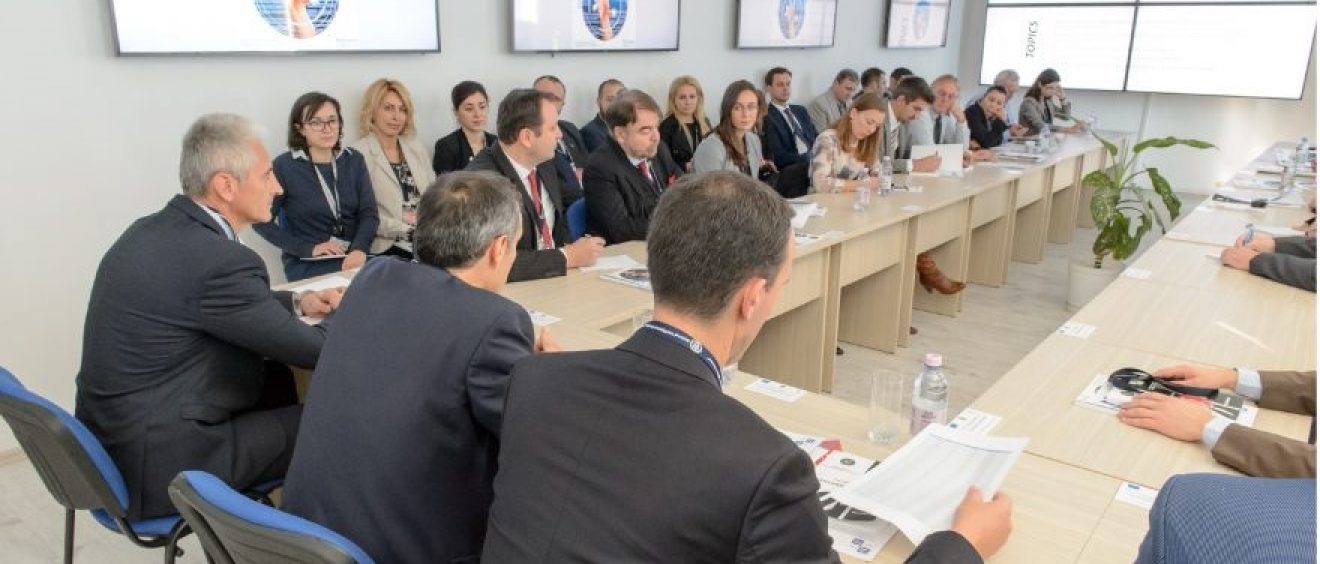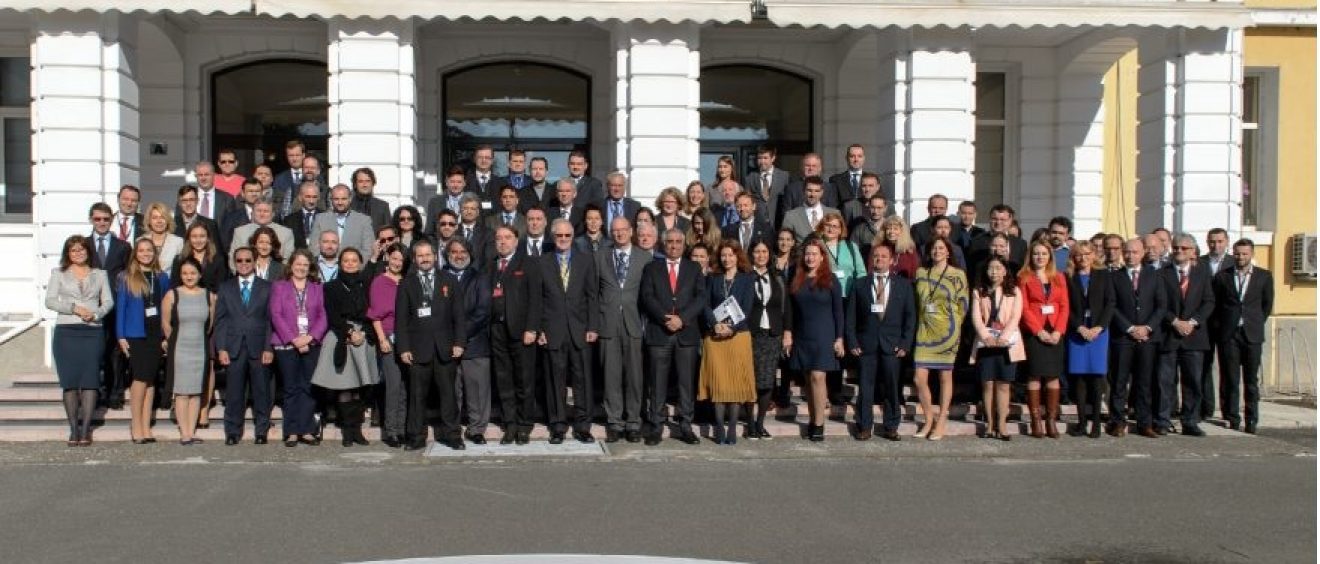În perioada 13-14 octombrie 2016, Academia Națională de Informații „Mihai Viteazul” a organizat a XXII-a ediție a conferinței internaționale „Intelligence in the Knowledge Society”. Evenimentul a continuat buna tradiție a Academiei de a răspunde nevoilor stringente de cunoaștere a factorilor de schimbare ce guvernează societatea modernă și influențează dinamica mediului internațional de securitate. Sub această umbrelă tematică, panelurile conferinței au abordat subiecte relevante atât pentru mediul academic, cât și pentru experții și practicienii din domeniul studiilor de securitate și intelligence. Prezentările au vizat componente diversificate, de la metode inovative de instruire în intelligence și crearea unor noi modele de cooperare la nivel european, până la propunerea unor soluții de eficientizare a comunicării riscului între decidenți și societatea civilă, capitalizând cunoașterea generată de convergența dintre tehnologiile emergente, securitate și intelligence.
Ediția de anul acesta a propus un format inovator, găzduind atât discuțiile tematice din paneluri, cât și sesiuni de dezbatere și prezentări de tip expert talk și a oferit tinerilor cercetători și studenților doctoranzi în domenii conexe studiilor de securitate și intelligence oportunitatea de a-și prezenta stadiul cercetărilor curente și viziunea proprie asupra dinamicii de securitate în cadrul unei sesiuni dedicate de postere.
Bucurându-se de prezența a peste 150 de participanți, din România și din străinătate, a unor membri de prestigiu din mediul academic internațional, dar și de cea a unor experți și practicieni din domeniul studiilor de intelligence și de securitate, conferința a oferit oportunitatea dezbaterii și problematizării principalelor teme aflate pe agenda de securitate națională, regională și globală.
The 22nd edition of the IKS Conference, about which I had heard already many good tidings in the past, lived up to my expectations in all respects: a gathering of collected wisdom and experience in intelligence from around the world hosted by a combination of Romanian efficiency and hospitality. Great presentations on current and potential developments in intelligence and its task and value environment, much food for thought and the possibility to make easy connections amidst many familiar as well as a host of new faces. It all contributes to the development of intelligence studies as an academic discipline in Europe, which I can only applaud as the chair of the European Chapter of the International Association for Intelligence Education.
The October 2016 Conference sponsored by the National Intelligence Academy of Romania continued a tradition of focusing on current and future intelligence issues of common concern to an international assemblage of practitioners, academics and experts. The topics of discussion included improved analytical tools, informational warfare techniques, policies for encryption challenges, intelligence agency cooperation efforts, radicalization as a prelude to terrorism and intelligence education. The scope and organization of the conference permitted and encouraged participant discussion on all topics of intelligence interest.
Beyond the substance of the presentations, the conference demonstrated the areas of common concerns among the participants from all over Europe and North America. The conference encouraged continued future contact among the various government agencies and international experts on such issues as analysis and terrorist prevention. On transnational issues like terrorism, proliferation, organized crime and rogue states, the conclusion at the conference was that intelligence agencies and experts must work together on these threats common to all.
It is always a pleasure to be back at IKS, the international conference on Intelligence in the Knowledge Society, organized in Bucharest by the Romanian Intelligence Academy. For me it is an opportunity to meet colleagues, friends and other intelligence scholars. The several panels tried to cover most of the issues and topics that contemporary intelligence activities have to face: cognitive biases, open sources, cyber warfare and the like. Particular attention was devoted to the problem of privacy and backdoors in communication systems. An interesting presentation described the recent EU-funded ARMLET project for training air marshals. My contribution tried to highlight the necessity of exploratory methods to elicit new hypotheses, in order to diminish the typically confirmatory nature of intelligence analysis. As a side note, I would like to have more room for an open discussion at the end of each presentation (and not of the session), in order to encourage a seemingly shy audience to ask questions and challenge the lecturers.

